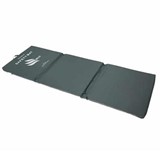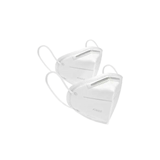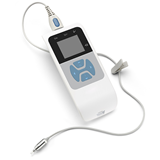One in six Australians are affected by hearing loss. With an ageing population, hearing loss is projected to increase to one in every four Australians by 2050 and can have a profoundly negative effect on ones quality of life.
This announcement coincides with the start of Hearing Awareness Week.
Elliot said the funding is made available through the Australian Government’s Hearing Loss Prevention Program and will provide for vital research and related prevention strategies.
“The research will fill important gaps and progress knowledge to inform prevention programs,” Elliot said.
“The research projects will examine the management of middle-ear disease and hearing loss in Aboriginal children up to five-years-old, target school-age children and young people with prevention education and identify enablers and barriers to the use of hearing protection in the workplace.” Elliot said.
According to the Access Economics report, “hearing loss costs the Australian community about $11.75 billion a year”. The major components of this cost are lost productivity ($6.7 billion), the cost of informal carers ($3.2 billion) and direct health system costs ($674 million) per annum.
“The Hearing Loss Prevention Program tackles the burden of preventable hearing loss in the Australian community and targets young people, Aboriginal and Torres Strait Islander people and people in the workplace.”
This year’s Hearing Awareness Week theme is ‘One in Six – its more common than you think’, was officially launched in Melbourne.
The aim of Hearing Awareness Week is to raise awareness of hearing loss, assist and support affected people, educate the general public about reducing the incidence of hearing loss and about measures that can be taken to improve quality of life.
“This Week provides an opportunity for people to get information about services available and free hearing screenings, at many hearing centres across the nation.” Elliot said.
Funding under the Hearing Loss Prevention Program has been awarded to:
Dr Warwick Williams from the National Acoustic Laboratories for a project to establish the prevalence of hearing loss and its relationship to leisure sound exposure in adolescents; and a study to provide a comprehensive and accurate picture of noise exposure for young people together with an assessment of the relative ‘hazard’ contribution that different activities and environments pose for young people across a lifetime.
Dr Paul Chang of Edith Cowan University for a project to determine the effectiveness of a health-based fear appeal augmented by simulations of hearing loss and tinnitus in comparison to warnings that emphasise health concerns alone.
Associate Professor Linnett Sanchez of Flinders University for a longitudinal study with high statistical power to significantly extend previous research into the effects of the use of swimming pools by Indigenous children in remote communities by incorporating measures of hearing (audiometry) and middle ear function (tympanometry) as the critical outcome measures which are more directly linked to educational outcomes in these children.
Associate Professor Peter Morris of the Menzies School of Health Research for a project to evaluate a comprehensive case management support program for the prevention of hearing loss associated with otitis media with perforation in Indigenous children 0-5 years of age.
Dr Peta Miller and Dr Perri Timmins of the Department of Education, Employment and Workplace Relations for a project to determine the key barriers and enablers to the effective control of hazardous occupational noise exposure amongst key stakeholders within selected high risk populations.
- Suppliers
- New to MedicalSearch? Book a Demo
- Advertise with us
- Login
- Email Marketing
- Buyers
- Get Quotes
- Articles & Ideas
- Login
- Subscribe to newsletter
- My Details
- Get Quotes
- Accident & Emergency Care
- Aged Care & Disability
- Anaesthesia & Respiratory Care
- Beauty & Wellness
- Cardiology & Cardiac Surgery
- Commercial Cleaning & Laundry Supplies
- Dental Care & Oral Surgery
- Diagnostic Instruments & Medical Imaging
- Disinfection & Sterilisation
- ENT & Audiology
- Gynaecology & Obstetrics
- Homecare & Consumer Medical
- Hospital Equipment & Supplies
- Intensive Care Unit
- Laboratory & Pathology
- Medical Apparel
- Medical Devices & Products
- Medical Fridges & Freezers
- Medical Storage & Filing
- Medical Waste Management
- Optometry & Ophthalmology
- Orthopaedics & Podiatry
- Paediatrics & Neonatology
- Patient Monitoring & Management
- Physiotherapy & Rehabilitation
- PPE & Infection Control
- Single Use Medical Consumables
- Surgical Tools & Supplies
- Treatment Beds, Tables & Couches
- Veterinary Equipment
- Wheelchairs & Mobility Aids
- Get Quotes
- Accident & Emergency Care
- Aged Care & Disability
- Anaesthesia & Respiratory Care
- Beauty & Wellness
- Cardiology & Cardiac Surgery
- Commercial Cleaning & Laundry Supplies
- Dental Care & Oral Surgery
- Diagnostic Instruments & Medical Imaging
- Disinfection & Sterilisation
- ENT & Audiology
- Gynaecology & Obstetrics
- Homecare & Consumer Medical
- Hospital Equipment & Supplies
- Intensive Care Unit
- Laboratory & Pathology
- Medical Apparel
- Medical Devices & Products
- Medical Fridges & Freezers
- Medical Storage & Filing
- Medical Waste Management
- Optometry & Ophthalmology
- Orthopaedics & Podiatry
- Paediatrics & Neonatology
- Patient Monitoring & Management
- Physiotherapy & Rehabilitation
- PPE & Infection Control
- Single Use Medical Consumables
- Surgical Tools & Supplies
- Treatment Beds, Tables & Couches
- Veterinary Equipment
- Wheelchairs & Mobility Aids
Trusted by 520,000 Australian medical buyers
Buyers
- Discover products & solutions
- Login
- Subscribe To Newsletter
- Browse All Products
- Read Articles
Suppliers
Advertise
- Promote your products & solutions
- New to MedicalSearch? Book a Demo
- Login / Forgot Password
- Advertise Your Products
- Success Stories
- Email Marketing
- Suppliers
- Advertise with us
- Login
- Email Marketing
- Buyers
- Get Quotes
- Articles & Ideas
- Login
- Subscribe to newsletter
- My Details
Get Quotes
- Accident & Emergency Care
- Aged Care & Disability
- Anaesthesia & Respiratory Care
- Beauty & Wellness
- Cardiology & Cardiac Surgery
- Commercial Cleaning & Laundry Supplies
- Dental Care & Oral Surgery
- Diagnostic Instruments & Medical Imaging
- Disinfection & Sterilisation
- ENT & Audiology
- Gynaecology & Obstetrics
- Homecare & Consumer Medical
- Hospital Equipment & Supplies
- Intensive Care Unit
- Laboratory & Pathology
- Medical Apparel
- Medical Devices & Products
- Medical Fridges & Freezers
- Medical Storage & Filing
- Medical Waste Management
- Optometry & Ophthalmology
- Orthopaedics & Podiatry
- Paediatrics & Neonatology
- Patient Monitoring & Management
- Physiotherapy & Rehabilitation
- PPE & Infection Control
- Single Use Medical Consumables
- Surgical Tools & Supplies
- Treatment Beds, Tables & Couches
- Veterinary Equipment
- Wheelchairs & Mobility Aids
Get Quotes
- Accident & Emergency Care
- Aged Care & Disability
- Anaesthesia & Respiratory Care
- Beauty & Wellness
- Cardiology & Cardiac Surgery
- Commercial Cleaning & Laundry Supplies
- Dental Care & Oral Surgery
- Diagnostic Instruments & Medical Imaging
- Disinfection & Sterilisation
- ENT & Audiology
- Gynaecology & Obstetrics
- Homecare & Consumer Medical
- Hospital Equipment & Supplies
- Intensive Care Unit
- Laboratory & Pathology
- Medical Apparel
- Medical Devices & Products
- Medical Fridges & Freezers
- Medical Storage & Filing
- Medical Waste Management
- Optometry & Ophthalmology
- Orthopaedics & Podiatry
- Paediatrics & Neonatology
- Patient Monitoring & Management
- Physiotherapy & Rehabilitation
- PPE & Infection Control
- Single Use Medical Consumables
- Surgical Tools & Supplies
- Treatment Beds, Tables & Couches
- Veterinary Equipment
- Wheelchairs & Mobility Aids
Trusted by 520,000 Australian medical buyers






